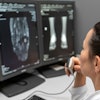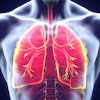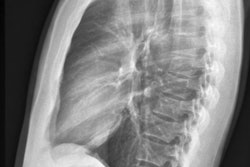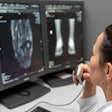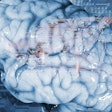Dear Artificial Intelligence Insider,
The Society for Imaging Informatics in Medicine's annual Conference on Machine Intelligence in Medical Imaging (C-MIMI) has always provided a great opportunity to hear about current issues and cutting-edge research in artificial intelligence (AI), and this year's virtual meeting was no exception.
For example, a group from Stony Brook University highlighted the potential of machine learning to predict patient response to antidepressant therapy based on evaluation of pretreatment MRI exams. Our coverage of their work is the subject of this edition's Insider Exclusive.
In another presentation at C-MIMI 2021, researchers from Johns Hopkins University shared how utilizing both frontal and chest radiographs in AI models can improve performance for classifying adenopathy. Also, Ravi Samala, PhD, of the U.S. Food and Drug Administration shared the agency's perspective on the unique regulatory challenges of AI and current regulatory science research gaps.
There were also plenty of other AI developments over the last month to cover. For instance, a large-scale, federated-learning initiative resulted in a deep-learning algorithm that produced highly accurate results for predicting clinical outcomes in COVID-19 patients.
Although concern has emerged lately that AI could exacerbate racial disparities in healthcare, some feel that the technology could -- if appropriate steps are taken -- actually help address this challenging and crucial issue.
The combination of AI and CT radiomics was shown to differentiate benign from malignant renal masses, potentially helping to avoid unnecessary surgeries. Also, AI can be used with perfusion imaging to assess stroke patients' collateral flow.
Another study showed that deep learning-based image reconstruction can reduce shoulder MRI scan times by more than two-thirds without compromising image quality. Meanwhile, deep learning-based analysis may be poised to dramatically change the practice of musculoskeletal radiology.
Suspicious bone lesions on whole-body scintigraphy exams can be identified and characterized by a deep-learning model. Incorporating machine learning could also make brain MRI more effective at diagnosing autism spectrum disorder.
AI may be able to facilitate personalized breast cancer screening protocols for women. On the downside, a new study concluded that the evidence was currently insufficient for AI to examine mammograms on the screening pathway.
Deep learning could also help improve the ability of radiologists to identify and classify lung nodules on CT, and it was also deemed to be highly sensitive for detecting pulmonary nodules on CT exams in clinical practice. What's more, five different AI algorithms demonstrated strong performance for detecting tuberculosis on chest x-rays.
AI can offer value in diagnosing and assessing the prognosis of oral squamous cell carcinoma. In addition, a CT-based radiomics model can assist clinicians in predicting neoadjuvant chemotherapy response in gastric cancer patients. With help from AI, sarcopenia can be assessed on both chest and abdominal CT exams.
Do you have an idea for a story you'd like to see covered in the Artificial Intelligence Community? Please feel free to drop me a line.


